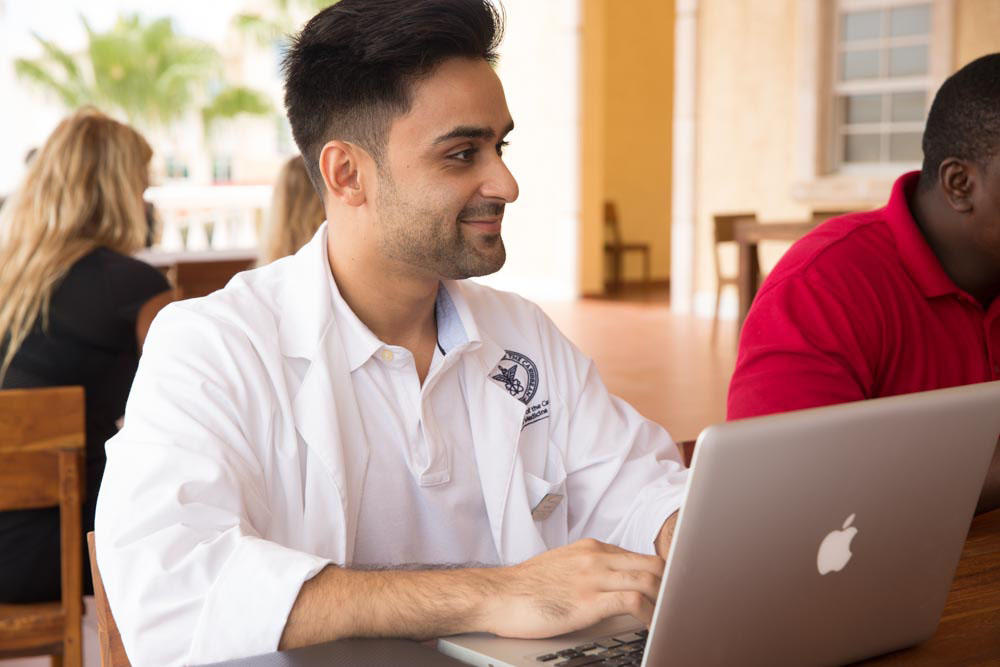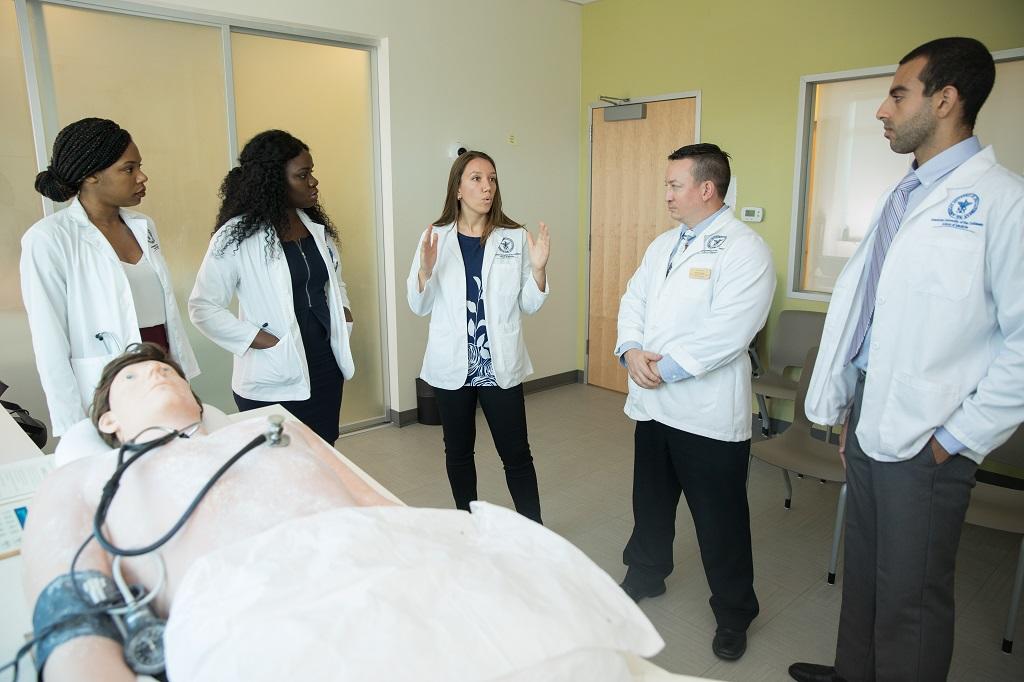Graduating from a medical school—such as the American University of the Caribbean School of Medicine—and earning a medical license are immense accomplishments, but they may seem easy after a physician is immersed in the demanding medical profession. One must not only learn the skills and have the knowledge to be a doctor, but one must try to be a good doctor as well. But what skills do doctors need to rise above others? What are the abilities and factors that make a good physician? All doctors have adequate medical ability and knowledge, but certain doctor skills and characteristics may separate one practitioner from another—even determine if patients and colleagues consider one doctor “good” or better than others.
Usually, colleagues value a doctor’s medical knowledge, the ability to teach others, and personal ethical practices, but patients often value physicians more for their communication skills and overall bedside manner. In this post, we examine the skills needed to be a good doctor, as well as the qualities and behaviors that may help physicians develop these skills.
Skills Needed to Be a Doctor
The Accreditation Council for Graduate Medical Education (ACGME) outlines six core competencies, or the skills needed to be a doctor, that every physician should have by the time they finish residency.
- Medical Knowledge
- Obtain and apply medical knowledge
- Patient Care
- Provide compassionate, appropriate, and effective medical care
- Professionalism
- Serve patients and interact with colleagues with compassion, integrity, and respect; apply ethical principles to medical practice; hold oneself to a high standard, both professionally and personally
- Interpersonal Communication
- Develop and demonstrate effective communication skills used with patients, families, the public, other healthcare professionals, and healthcare agencies; be a team player; keep accurate and complete medical records on patients
- Practice-Based Learning
- Continually evaluate and improve patient care by participating in learning activities, staying up-to-date on the latest research, and applying this knowledge to clinical practice
- System-Based Practice
- Be aware of the workings of the healthcare system and changes that impact it; be an active participant in changes and improvements in the system
While these competencies cover a lot of ground, we now look at some “soft skills” that can help a physician attain the core competencies and become the kind of doctor that patients return to and recommend to their friends and families.
Below we examine interpersonal doctor skills, qualities, and behaviors and show the importance of doctors cultivating these skills in order to build good working relationships with patients and peers.
Communication Skills To Be a Good Doctor
Communication is among the skills required to be a doctor. Good communication helps physicians connect with and understand patients. Good communication can also make a doctor a great asset to an institution or medical facility. Doctors are not just medical providers, but also teachers, consultants, mediators, researchers, public orators, and writers.
Now we take a look at some behaviors and traits that can help doctors communicate effectively with patients and colleagues.
Compassion
Compassion is the hallmark of a healthcare professional. Demonstrating emotional sensitivity to the pain of others shows that doctors too are human, and that they can relate to the pain and problems of patients.
Empathy
One of the most noteworthy skills needed to be a doctor is empathy. For a doctor to display empathy, they must put themselves in the place of the patient, which can be difficult for a busy or distracted doctor. Taking extra time to discover what the patient is going through, and learning how the patient feels will go a long way toward building trust between doctor and patient.
Acceptance
Related to empathy, a physician must also demonstrate acceptance—understanding the way things are and moving on from there. Doctors may see a patient’s life decisions as detrimental to their health, but doctors must accept patient decisions and do their best to help.
Show Interest
Also related to empathy, physicians should take an active interest in their patients' overall well-being. Physicians may ask open-ended questions and listen to what the patients have to say. In conversation, patients may reveal personal details that paint a picture of their state of body and mind. Learning the circumstances of a patient’s life—what is happening at home, with their children, even at their children’s school—goes a long way toward understanding the sources of stress or other emotional factors that influence mental and physical health. It also helps build trusting and long-lasting doctor-patient relationships.
Be Direct
A doctor may be direct without coming across as unfeeling or insensitive. Delivering news—which is often not good—can be difficult, but doing so with respect and directness helps a patient understand the gravity of the news, and it also helps build trust between patient and doctor. A “good” doctor will relate direct and unclouded information with compassion and empathy.
Being compassionate, empathetic, unbiased, interested, and direct when conversing with patients helps a doctor build trust and earn respect. Patients will know that they are much more than just a symptom or condition to be treated. They will know that their doctor sees them as an individual person and that any advice or treatment will be individual to them as well.
What Skills Do Doctors Need to Be Considered “Good”
Confidence... balanced with humility
Confidence has conviction while remaining calm in times of stress. Humility listens and asks for help when needed. A doctor displaying a balance of confidence and humility builds trust and breaks down barriers to communication, both with patients and other healthcare professionals. Tempering confidence with humility also dims any display of arrogance, which is off-putting to both patients and colleagues.
Diligence
Good doctors are detectives of a sort, and they should show due diligence in learning all they can about a patient’s particular case. Through careful and persistent work, physicians act as advocates for their patients and help as much as they can.
Resilience
A resilient doctor is ready to rebound from the many setbacks and problems that accompany the successes of the medical profession. Patients fall ill and die, and there are always unexpected occurrences: emergencies, disasters—even pandemics. Such smaller scale and everyday issues as insurance or government policy changes, broken diagnostic machines, or even new employees or schedules may also cause headaches, but a good doctor gracefully accepts changes and rises to meet unexpected challenges.
Passion
This quality may be last on the list, but all other skills, qualities, and behaviors are born from a doctor who is passionate about providing excellent medical care and helping people.
Doctors should always remember, however, that they are vulnerable to burnout. Passionate doctors must be wise enough to know when they need a break. They must be as honest about their own health and well-being as they are with the health and well-being of their patients. When possible, doctors should get adequate rest, sleep and exercise; eat healthy foods; and spend time away from work with family and friends. Without self-care, a doctor’s passion may become buried beneath a mountain of stress, and performance may deteriorate and patient relations may sour.
Of course, no list of skills needed to be a doctor—a good doctor—is finite or complete, and each doctor will learn and follow their individual course to better their skills and improve their medical practice. If you are interested in becoming a doctor—and a good one at that—apply for admission to AUC School of Medicine to start your journey.
Related Resources:




